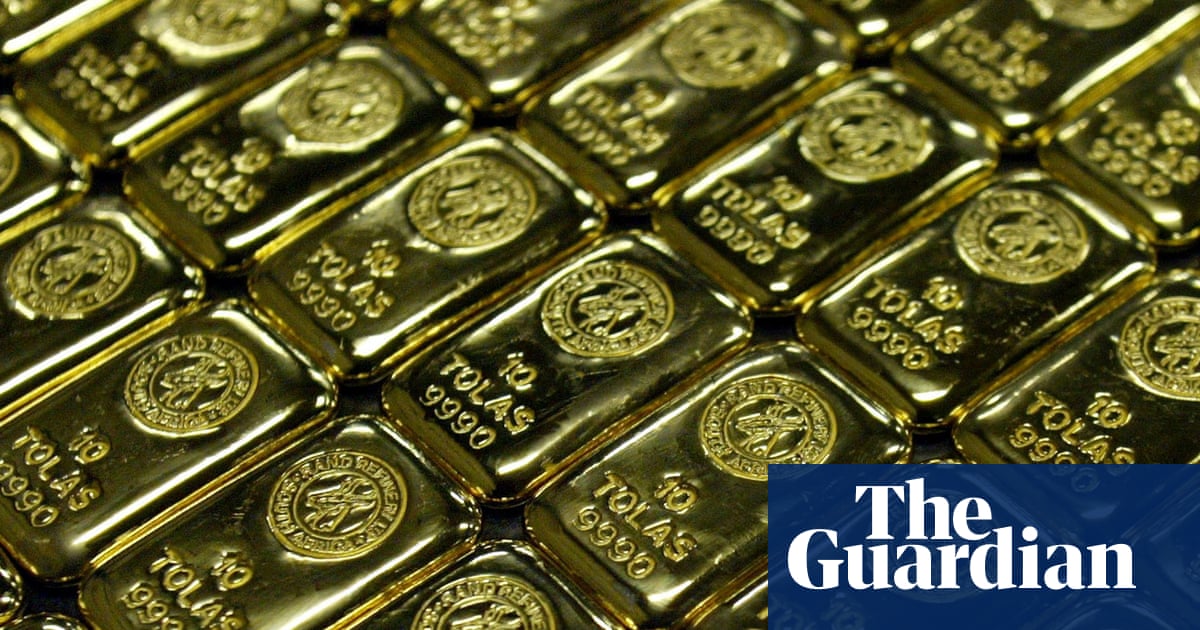The price of oil and gold has soared and stock markets have fallen afterIsrael’s strikes against targets in Iran.
The escalation of the conflict in the Middle East, the focal point of global oil production, prompted a sharp increase in prices, with Brent crude up more than 10% after news of the attacks broke, reaching its highest level since January.
The price later eased but was still up 5.5% at $73.12 a barrel, on course to record the biggest daily rise since 2022.
In London, the FTSE 100 – whichclosed at a record high on Thursday– fell 50 points on opening.
The increases hit the aviation industry, as airlines cleared the airspace over the region, and investors turned to safe investment assets such as gold and the Swiss franc.
Shares in the British Airways owner, IAG, and the budget airline easyJet fell more than 4%.
The top riser on the FTSE 100 was the weapons producer BAE Systems, up almost 3%, reflecting concerns that the Israel-Iran conflict could escalate. The oil companies BP and Shell were also among the risers, up 2%.
The price of gold rose 1.5% to $34,434 (£25,388) an ounce, close to the record high of $3,500 it hit in April, and the Swiss franc and yen rose about 0.4% against the dollar.
“The geopolitical escalation adds another layer of uncertainty to already fragile sentiment,” said Charu Chanana, the chief investment strategist at Saxo.
Stocks dived in Asia, with Japan’s Nikkei down 1.3%, South Korea’s Kospi falling 1.1% and Hong Kong’s Hang Seng dipping 0.8%.
InEurope, major markets across Germany, France, Italy and Spain all fell more than 1%.
The pan-European Stoxx 50 futures fell 1.6%, and US markets are set to follow suit when they open later on Friday, led by a sell-off in Wall Street futures. S&P E-mini futures fell 1.7% and Nasdaq futures dropped 1.8%.
Israel, which said its attack was a “pre-emptive strike” over Iran’s nuclear programme, has declared a state of emergency as its military said Tehranhad launched 100 drones in retaliation.
Sign up toBusiness Today
Get set for the working day – we'll point you to all the business news and analysis you need every morning
after newsletter promotion
Marco Rubio, the US secretary of state, called Israel’s strikes againstIrana “unilateral action” and said Washington was not involved.
The move to perceived safe haven assets has resulted in the yield on 10-year US Treasury notes falling to a one-month low of 4.31%.
The US dollar index rose 0.5%, while the euro fell 0.4% and sterling slipped 0.5%.
Derren Nathan, the head of equity research at Hargreaves Lansdown, said: “It’s not just the outlook for Iranian exports that’s a concern but also the potential for disruption to shipping in the Persian Gulf’s strait of Hormuz, a key route for about 20% of global oil flows and an even higher proportion of liquified natural gas haulage.”
Jochen Stanzl, the chief market analyst at CMC Markets, said: “Investors are now grappling with the prospect of two wars and an ongoing trade conflict, prompting a reassessment of risks.
“Gold prices are heading towards record highs, equities are under pressure, and the dollar is rising once again. The events of the past few hours have sparked a broad risk-off movement among investors.”
